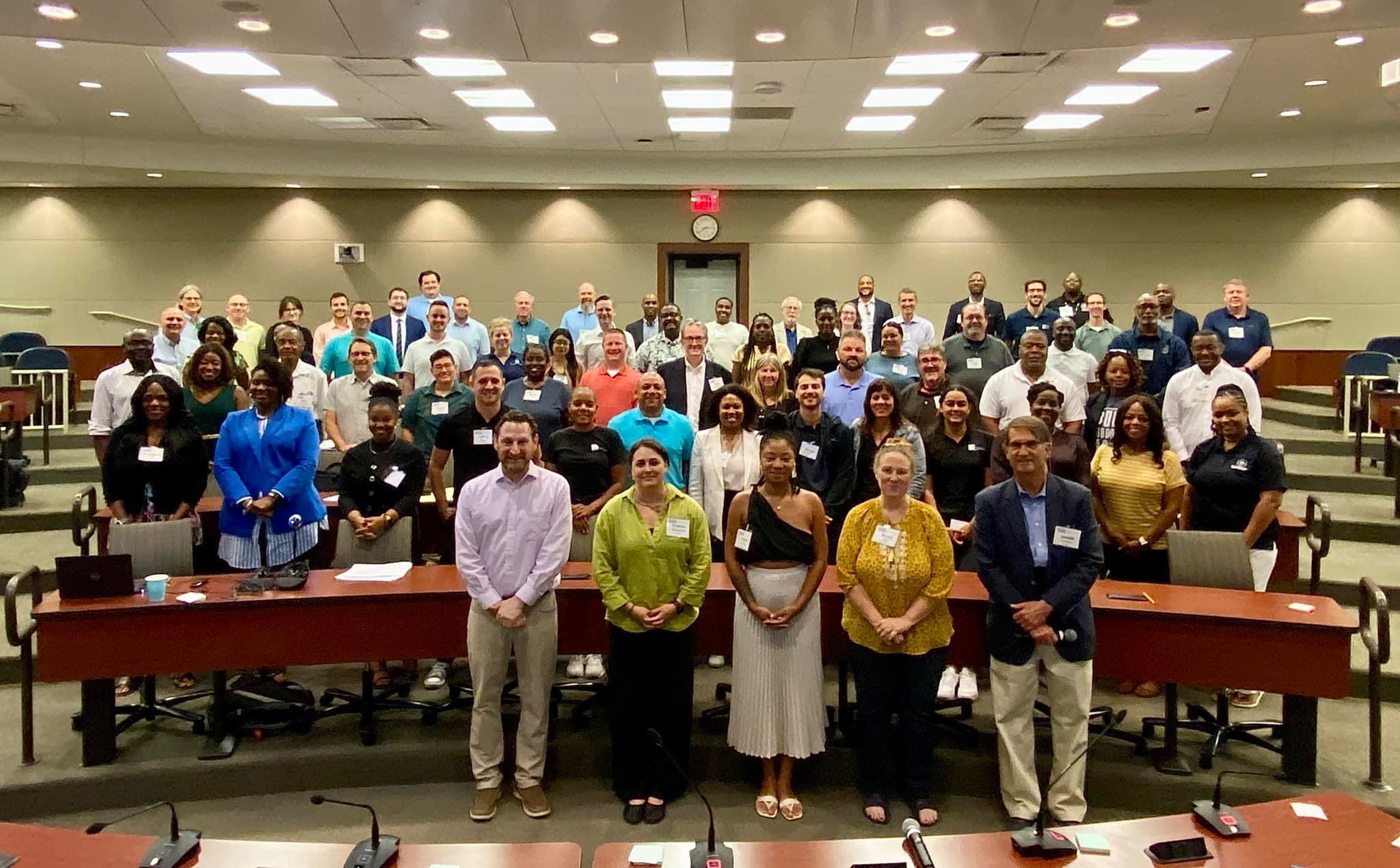Every Year Hundreds Descend on Memphis to Learn about Code Enforcement
By Zoë Dominguez
In a crowded lecture hall of the University of Memphis Law School, I felt fully out of my element. That morning I watched as code inspectors, community organizers, law enforcement, and attorneys, shuffled into the building for a full day of conversations on strategic code enforcement. (Que record scratch) – “What am I doing here,” I thought.
As an undergraduate Urban Studies major, I’m used to finding intrigue in mundane spaces. Friends get sick of my greenspace critiques, my commentary on sidewalk structure, and my impassioned bike lane rants. Still, even with my background in Urban Studies, I knew little about code enforcement. The boundaries of my knowledge ended at blighted properties, abandoned cars, and neglectful landlords. When I began my summer internship at the affordable housing non-profit The Works, INC., I was surprised to discover not only the scope of the issue but also the passionate and insular world of those who care about it. For two days, the Strategic Code Enforcement Management Academy (SCEMA) brings this world into one room.




Each year, dozens of people travel to Memphis, TN from everywhere across the United States for an educational conference on strategic code enforcement. SCEMA, founded in 2017 through a partnership with the UofM Law School and Neighborhood Preservation, INC. aims to elevate the field of code enforcement through a community-based educational model. Representatives from participating cities attend lectures, break out groups, and reflection tables for a peer-learning experience, with the ultimate goal of strengthening their capacity to make, administer, and enforce state and municipal codes that protect the health, safety, and sustainability of residential neighborhoods.
Code enforcement, by its very nature, is an individualized field. Approaches are often fragmented across institutions and only have the capacity to work within the bounds of singular municipalities. Recognizing the need for national communication and collaboration for those engaged in code enforcement, SCEMA brings together community leaders from different institutions, departments, agencies, and organizations to share resources and ideas. In doing so, attendees are able to evaluate the deficits in their strategy.
I observed a clear example of this effect through the reactions to faculty member Andrew Kieve’s lecture on the importance of utilizing data in code enforcement. Kieve, CEO of Tolemi, a Boston based civic technology company, asked attendees to reflect on their ability to access, understand and use data, and how lack of departmental collaboration, data analysis, and resources might affect their answer. After sharing their experiences in a conference-wide conversation, participants split into city-based reflection groups. It was in these reflection groups that I recognized the transformative power of SCEMA’s collaborative model. As a direct result of the city-focused discussions, attendees from across St. Louis were able to recognize the gaps in their data collection, and brainstorm avenues for cross-agency collaboration. The comparative aspect of SCEMA allowed them to develop plans of action based on the models of other cities. I watched as a community of passionate people, whose work is so often overlooked, find solidarity amongst each other.
Zoë Dominguez is an intern with the Works, Inc., whose mission is to rebuild, restore and renew Memphis neighborhoods through innovation, advocacy and collaboration.

